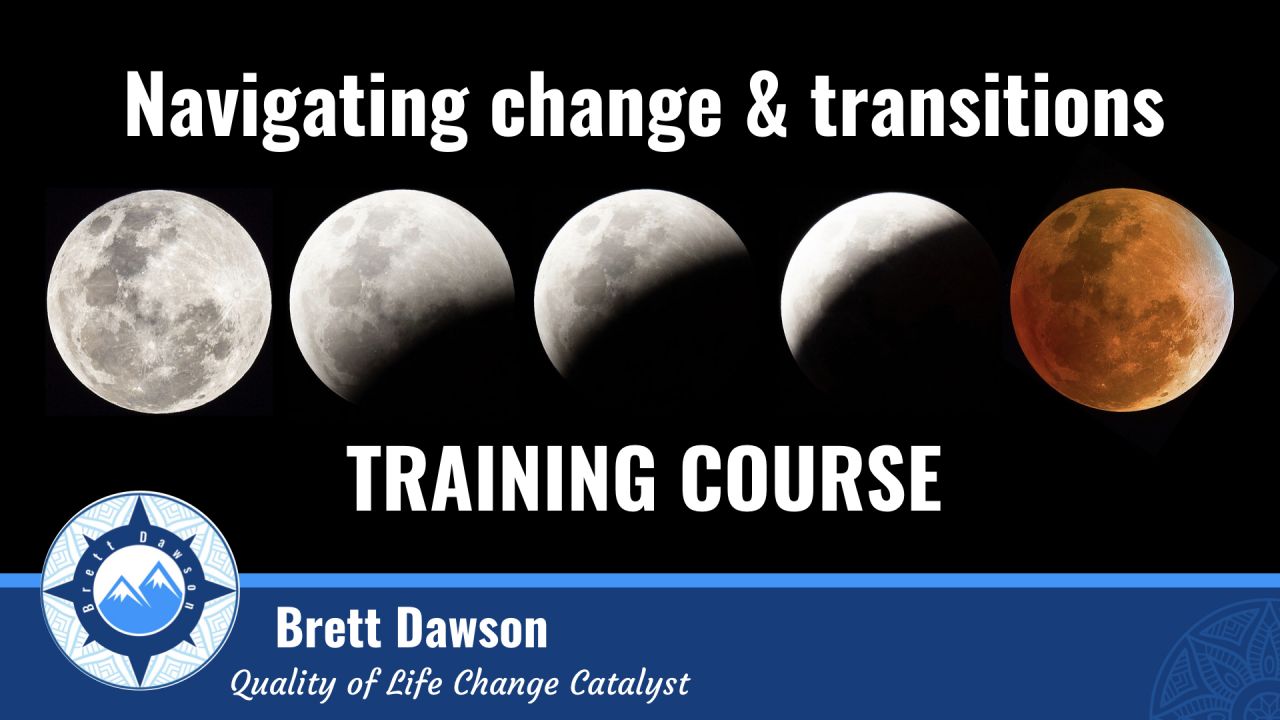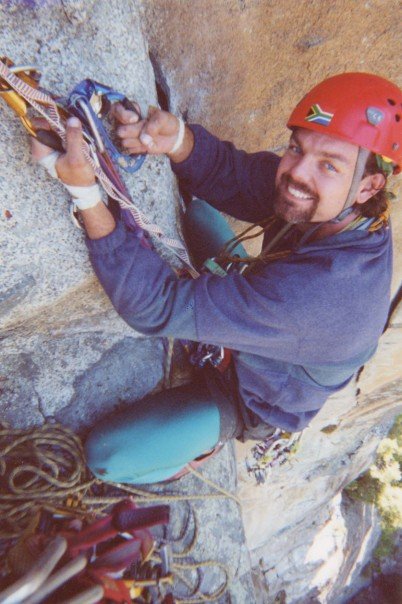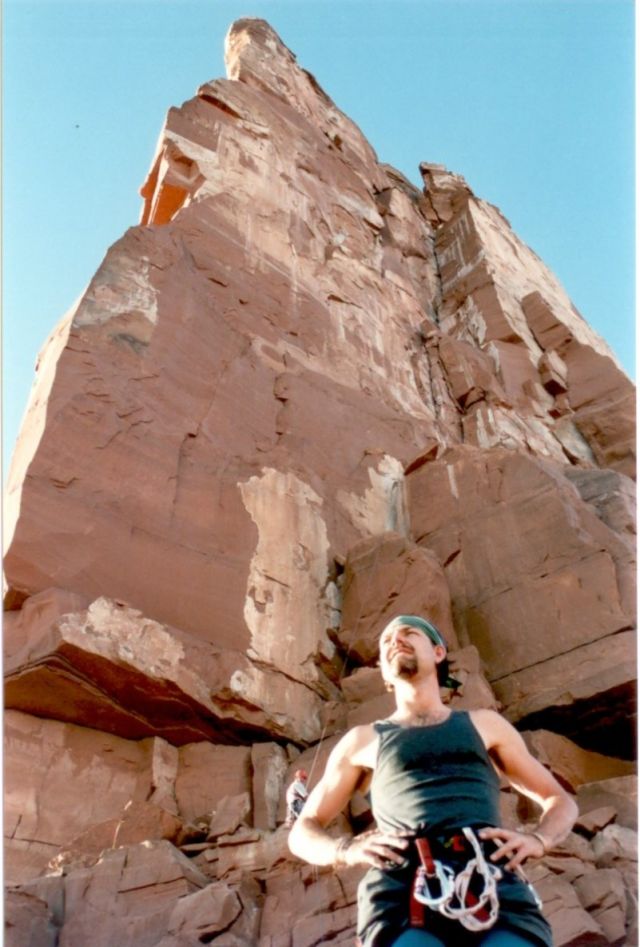AWARENESS
Change & Transition

Are you feeling demotivated, uninspired or disconnected at work? Are your energy levels a bit low? You may even be feeling a bit disenchanted with life in general. Understanding why this is happening will help you prepare for the changes that are coming because there is no doubt about it – change is on its way and these feelings are sometimes the first signs.
Sometimes external events or changes lead to internal transitions and sometimes it’s the internal transitions that lead to decisions and actions that result in external changes and events. Change is a dual process of external events and internal transformations of the heart and mind. In this article, I am going to help you understand the transformation cycle that all changes go through and what you can do to avoid making the common mistakes that people sometimes make when they experience change. This will help you prepare for what’s coming and empower you to manage future changes. We seem to be living in a world of rapid change, where ironically change is the only constant, and learning to be more resilient in the face of constant change is one of the most important skills you can master.
The first signs of trouble
One of the biggest changes I experienced in my career was initially driven by the feeling that as an engineer working in a multi-disciplinary team I was just another tool in the toolbox. There was nothing about me and what I had to offer as an individual that made any difference to the role I was employed to perform. I was working as a design engineer at one of the largest petrochemical industrial complexes in the world. I was gaining invaluable experience and this was good for my career. However, I was heading into a transition in my career, one that most people experience at some stage in their career and I wasn’t fully aware of it. The first signs of trouble emerged as a reality check – something happened that made me step back and reflect on things. My experience was a case of the transition coming before the change, where the transition lead to the change. In other times in my career, it has worked the other way around, a change has lead to a transition. Transitions and changes are not the same thing.

Every transition has a catalyst event – this is something that happens that is different to your expectations
A gap opens up in your perception of reality and you start questioning things. The catalyst event can be a dramatic and sometimes traumatic change in the form of an economic recession, a redundancy or a layoff. Or it can be more subtle: disenchantment with your work hours, a poorer than expected performance appraisal, a callous remark from someone that make you question your value or place in a role, a team or an organisation. In my case, it was being passed over for promotion – not once, but twice in a row, and at a time that I was being told that I was going to be promoted. I was receiving positive feedback that I was doing a good job and the promotion was imminent and yet, when the promotion meetings occurred I wasn’t promoted. My supervisor was unconvincing with he’s weak excuses and I had to face up to the truth of the situation that there was a gap between what was being said and what was actually happening and this bothered me immensely. At that stage in my career, the primary driver in my career was career progression. I wanted to climb the corporate ladder and eventually work my way into a board room to serve as a Director. At the time that I was passed over for promotion, I was two promotion grades behind my peers and I felt as though my career was in serious trouble. I was only about five years into my career, so realistically it wasn’t a significant problem but it felt like a serious wake-up call. It was time to be honest with myself. This mini-crisis helped me step back and reevaluate what was really important to me in my career. It helped me to stop and reflect on how I felt about things and how it was really going. Everyone does this at some stage, and you will probably find that this happens many times in your career. It’s tempting to ignore and avoid thinking about these inconveniences but truth and honesty will always be your best guides.
Your priorities will change through your career
The thing I realised later in my career is that as I got older my priorities in life and in my career were changing. I was even shocked to discover that my values had changed. Well, that’s what I thought had happened but it was more of a reprioritising of values where a different set of values started to influence my choices and what I considered to be important.
At the time that I was passed over for promotion, I started questioning what was important to me and I started realising that not only did I not feel valued in my role but I also wasn’t really that interested in the work I was doing. I was doing the calculations and ticking the boxes but I felt like a commodity. I had no doubt that if I left I would be swiftly replaced by another equally competent engineer. Most chemical engineers are trained to perform the role of being a design engineer and it represents the pinnacle of the profession. Designing and building stuff is what every engineer wants to do, so I felt some loss of identity when I started wondering what else I could do with my engineering degree. The more fundamental transformation that was taking place was that I was trying to figure out how I could do something that had meaning to me. I was starting to realise that the objective to climb the corporate ladder to get into a board room was no longer good enough and that there was an underlying lack of meaning that was deeper and more pervasive than any of the previous drivers that had motivated my career. I started to realise that aspiring to become a CEO didn’t address the fundamental existential problem of what type of work I wanted to be in a leadership position for at some stage in the future.
The difference between change and transition
A change is something that manifests itself externally. It’s the performance review, or the promotion or lack of one. It can be the time when you start looking for a different job, the interview you go to, the new job offer you get, the new city you move to. However, transition is something that happens internally. As William Bridges says in his book on Transitions: every change leads to a transition and every transition leads to a change. The two go hand in hand and the one may follow the other, but there is no specific order to which occurs first. Changes are easy to identify but transitions are mostly hidden. Transitions are experienced and felt. For engineers, accountants and other technically minded professions who are more talented at analytical thinking than tapping into feelings or intuition, transitions can be difficult to understand or recognise.
Transitions always start with an ending
Transitions always start with an ending. At work, this ending may manifest itself as a lack of motivation or interest in the work. It is often accompanied by feelings of disconnection, disenchantment or disengagement. You may even feel lost or disorientated. You might be asking yourself things like “what the hell am I doing here?” “Why am I living in this tiny little town in the middle of nowhere?” “Why am I working these ridiculously long hours?” These were the questions I started asking myself when I was passed over for promotion. I was living in a small industrial town situated on a flat grassland that was a hundred miles from the closest large city. I loved nature and wild animals and mountains and there was none of that anywhere around me at the time. I simply accepted that it was the price I had to pay to be able to work at the best place to work as a chemical engineer in the entire country. It just happened to be a bit of a dump. I felt uninspired and my motivation started slipping. I wasn’t prepared to put the long hours in anymore. The disenchantment with the place and the job lead to a bit of disenchantment with the profession too. When the promotion came though it didn’t fix the problem. I was still feeling disenchanted and disengaged. At the time I thought the damage had been done but what had happened is that I had moved into the transition and it simply wasn’t possible to go back. Once a transition has started you can’t stop it from progressing. I could see that my lack of drive and enthusiasm was going to become a problem. Fortuitously an opportunity arose for me to join some friends of mine to do an epic rock climbing trip in North America and I grabbed it with both hands. I had the courage to apply for unpaid leave and was fortunate enough to have it granted, and so it was that I took a four-month sabbatical to embark on one of the most amazing adventures I have ever been on.
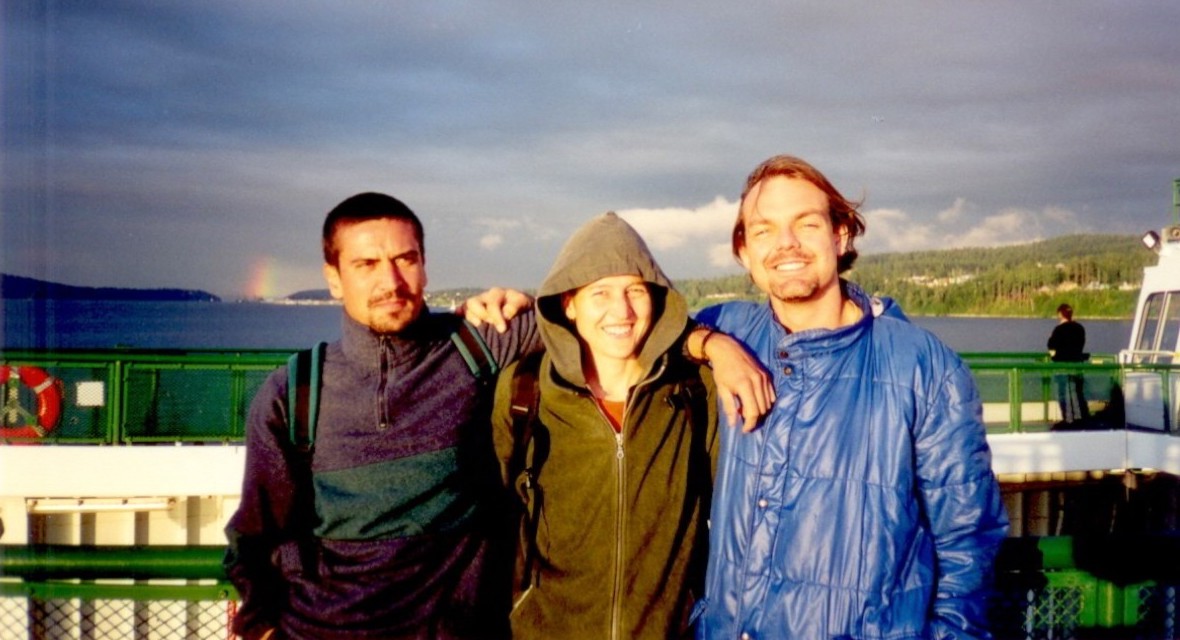
Transitions always progress through a period of unconscious transformation
The transition period after an ending is a period of unconscious transformation. This resembles a period of emptiness, that William Bridges calls the neural zone. This is a quiet period of unseen reformation. It is best symbolised by the transformative stage that a moth or a butterfly goes through in it’s transition from larva to imago in a chrysalis during its pupa stage. During this stage, the feelings of disengagement and loss of identity intensify. This is where the ending that started the transition is having its effects. To accept an ending you need to let go. Letting go requires you to deconstruct your attachments to the past. There are so many subconscious connections to beliefs, patterns of behaviour, ways of knowing and understanding how to behave and think and respond. All the related mental models of how the world worked before the ending need to be dismantled and reconfigured. This can be quite a disruptive time. Many people will want to spend some time alone as they move through this phase. Quite often, unless you are aware of transitions cycles and how they work, you might not even know why this is happening. This is a good time to take a break, go on holiday, book into a retreat or take a sabbatical. Taking a break from the old familiar settings will help loosen the bonds to the past more easily. There are no guidelines on how long this transformation state may last, it depends on how much rewiring your brain needs. There is also no guarantee that one retreat or holiday will be enough to do the job. A break will certainly help, but you may still need more time once you return. The most important thing at this stage is not to try to rush the process. The other temptation is to try go back to what you did in the past and attempt to reverse the process. These are the two mistakes to avoid. In the work context, your supervisor may be eager to get you back on the next project but beware – unless you have a good understanding of what change has been taking place and you are clear on how things will be different in the old setting, you might find that you are right back where you started. It is not easy to make sense of these transitions – so much of what is happening occurs subconsciously and the best you can do it allow it to unfold and try not to force it. If the transition wasn’t catalysed by a change you will find yourself looking to make a change when the time is right.
A new beginning
In my case, I started looking at what was being done in the other business units in the same organisation I was working for. I took a secondment to a new division and ended up staying there as my temporary placement was converted into a permanent contract. It opened up some amazing opportunities in my career and was one of the best things I had done. It also opened the way for me to take a new job with a new company in a new city a year and a half later. I managed to move from a tiny little industrial town in the middle of nowhere to my dream city: Cape Town, with its mountains, beaches, wine farms and unbelievably good quality of life. I moved on to work for one of the best known international companies in the oil and gas industry doing work that was more closely aligned with my skills and interests and I was on top of the world.

Cape Town at the V&A waterfront with Table Mountain
Building a new future
When the time is right and you are ready to make a change you might find that the change you want to make is outside of your comfort zone. You might find that the gap is bigger than a single step into a new role or job. Examples may be switching to a different industry or making a significant change in the type of role you perform. I have made several of these types of big changes and having reflected on what worked, what didn’t and studying how others have made changes, I have developed a process that can help you if you want to bridge the gap between where you are and where you would like to be.
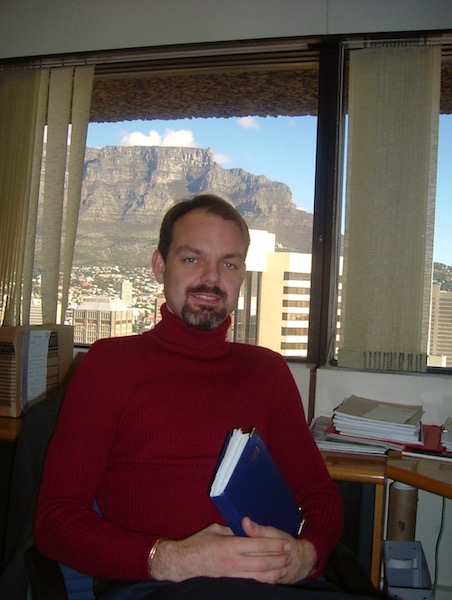
View from my desk in Cape Town
Photograph by Nadieyah H.
Conclusion
A new beginning signifies the end of a transition cycle. It’s counter-intuitive – transitions cycles start with an ending and end with a new beginning. Changes and transitions go hand in hand, one will always follow the other regardless of which occurs first. When changes come first it’s easier to understand and anticipate what comes next. However, if the transition occurs before the change, it can be confusing and distressing. Transitions always start with an ending to something. The ending can be easy to recognise or occur at a deeper subconscious level where it takes some time to surface and become apparent. It is frequently accompanied by feelings of disenchantment, disengagement, disconnection, disorientation and sometimes a lack of motivation or a loss of identity. If you start noticing any of these signs emerging in your work or life it’s time to step back and do some soul searching. Be honest with yourself and look for the truth of the situation you find yourself in. Awareness is important at this stage – it will help you understand what might be happening.
If you realise that a transition is emerging, don’t be alarmed and don’t panic – things will work out well in the long run and you’ll be better off after the transition – you just have to be patient and get through the cycle. Being aware of the transition cycle is key to understanding what is happening to you and making sure you look after yourself by giving yourself what you need at each stage in the cycle. Acknowledge any losses you might be feeling. Allow yourself to feel sad about changes in the form of losses or endings. Give yourself a timeout to process what is happening and allow your subconscious to dismantle your attachments to the past. Take time away from your normal reoutines. This is a good time to go on a retreat. Then when the time is right to take action, make changes and build a new future, you will be ready to do it effectively. It’s really important not to rush the messy bit in the middle and to avoid the temptation of going back to exactly what you were doing before.
Be open-minded to what is happening to you. Be honest with yourself about how you feel and what you are thinking. Be curious about what is happening in your environment, how people are treating you, what verbal and non-verbal feedback you are getting. Have the courage to take breaks when needed and make changes when they feel right. Once you have been through this cycle a few times you will become more resilient and adept at managing change in your life and work.

